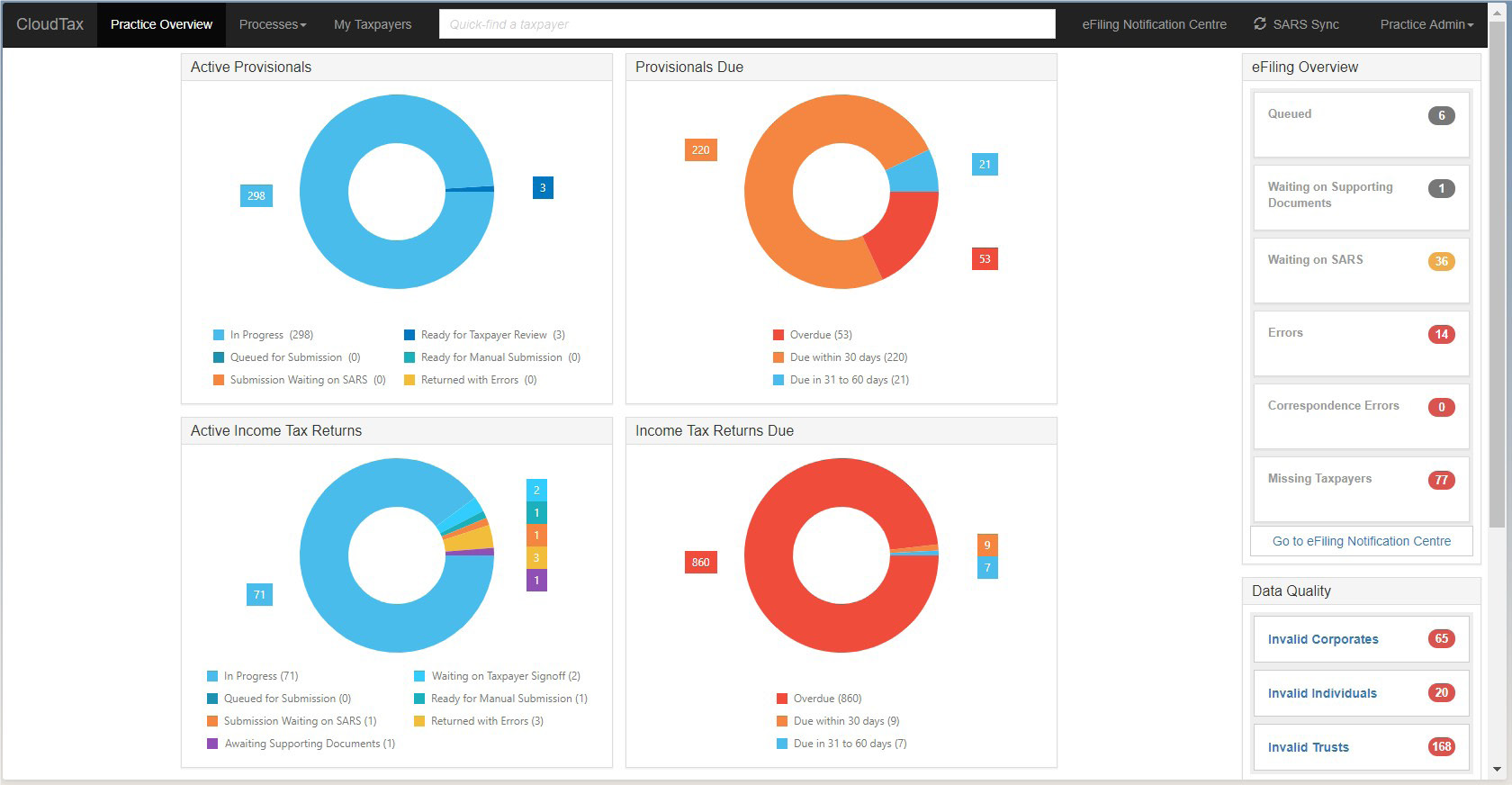CaseWare Africa's Michael Mncube elaborates on corporate tax challenges and how automation can improve efficiency.
by Michael Mncube, Tax Product Manager at CaseWare Africa, a division of Adapt IT.
The Income Tax Act requires all businesses liable to taxation to register with SARS as taxpayers. This comes with income tax return submissions which must be done 12 months after the tax year-end. In addition to annual income tax returns, every company is required to submit provisional tax returns.
The Challenges
Timelines
Timelines are unquestionably important in the whole process of tax return submissions. All tax practitioners concur that taxes and timelines go hand in hand: missing such deadlines incurs additional penalties coupled with interest. All of these add up to additional costs added to clients’ bills. Time definitely costs money in the tax world.
Given that legislation allows for companies to select their own year-end dates, there is a high probability that a single tax practitioner will have a portfolio of clients with different year-end dates. For a single tax client, the tax practitioner needs to be cognisant of four dates: the first; second; and possibly, the third provisional tax, as well as the annual income tax return due dates. Imagine having a large portfolio of tax clients and all with different tax year-ends – now that is a nightmare guaranteed to keep a tax practitioner awake at night.
Provisional taxes
Provisional tax is not a separate tax from income tax but a method of paying the income tax liability in advance, to ensure that taxpayers do not have huge tax debts on assessment. This is done through the submission of an IRP6 Provisional Tax Return. Provisional tax allows the tax liability to be spread over the relevant year of assessment. Taxpayers are required to pay at least two amounts, based on estimated taxable income, in advance during the year of assessment. A third payment is optional after the end of the tax year, but before the issuing of the assessment by SARS. On assessment the provisional payments will be off-set against the liability for normal tax for the applicable year of assessment. Issues normally arise when estimating taxable income, as when this is incorrectly done it might result in penalties being imposed by SARS.
Corporate income taxes
Corporate income tax is a tax imposed on companies resident in the Republic of South Africa (i.e. incorporated under the laws of, or effectively managed in, South Africa and that derive income from within or outside the Republic). Non-resident companies that operate through a branch or that have a permanent establishment in South Africa are subject to tax on all income from a source within the Republic. Payment of such taxes is through the submission of an ITR14 income tax return. This return comes with its challenges.
If gross income as disclosed on the first page of the ITR14 tax return does not agree with the aggregate total revenue and total other income as disclosed in the income statement section, the ITR14 will not print or cannot be submitted.
Getting the right number in the right box of the ITR14 tax return is a challenge and consumes a bit of time. Take gross income for instance, which comes from three different fields in the Statement of Comprehensive Income (Income Statement) namely adding Revenue to Investment and Other Income.
For the Asset section of the ITR14 tax return, splitting the non-current assets section is also a hassle. The numbers are not disclosed on the same page of the Statement of Financial Position (Balance Sheet): this must be unpacked from both the face of the balance sheet and the property, plant and equipment note.
These processes are daunting and time consuming. Getting this wrong poses, a risk for tax practitioners as there might be reviews or audits imposed by SARS, meaning further time investment and costs to the taxpayers.
Penalties and interests
Earlier this year SARS announced the implementation of administrative penalties on companies that do not comply with the requirement of submitting their tax returns. The penalties range from R250 to R16 000 per month that non-compliance continues, depending on a company’s assessed loss or taxable income.
With the possibility of penalties, there is now a more stringent requirement to stick to tax return submission deadlines in order to avoid such penalties and interest.
The solution
Automating your business practices will save you both time and money. Your administrative time will be reduced. Automation can avoid costly mistakes and disputes with SARS by ‘getting it right the first time’.
With automation, tax practitioners will position themselves as strategic advisers. They will move into advisory roles and away from the traditional administrative role. One of the ways technology can create efficiencies is when tax practitioners make use of automated systems to submit their income tax returns.
Automated tax software solutions, such as CloudTax offered by Adapt IT – CaseWare Africa, can automate the income tax submission process. This process is usually done manually by tax practitioners and takes a lot of time.
CloudTax is an automated cloud software that allows tax practitioners to store historical tax returns in the cloud, synchronise SARS correspondences and letters, track the work done by multiple professionals on a company’s returns, and create provisional tax returns 60 days before a deadline imposed by the tax authority.
Keeping a manual diary of deadlines is a thing of the past: CloudTax notifies you of all tax deadlines (income tax and provisional tax) 60 days before due dates and keeps track of such until returns are submitted through a single dashboard.

The aim with CloudTax is to save tax practitioners time and ultimately money, over and above minimising errors if not actually eliminating them completely.
CloudTax comes with an ITR14 tax return solution, the Corporate Tax Product which has automated integration with SARS synching. Populating the ITR14 has never been this easy. Using the solution puts the right number in the right box. The ITR14 is pre-populated through automated integration with CaseWare Working Papers. CloudTax also incorporates flexible integration with Xero, QuickBooks and Excel. Through automation, completing the ITR14 has been reduced to only seven simple steps.











